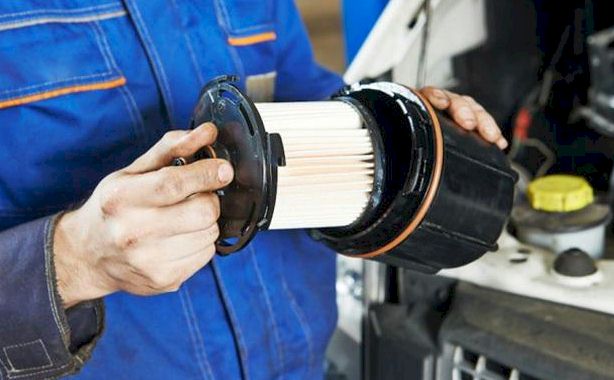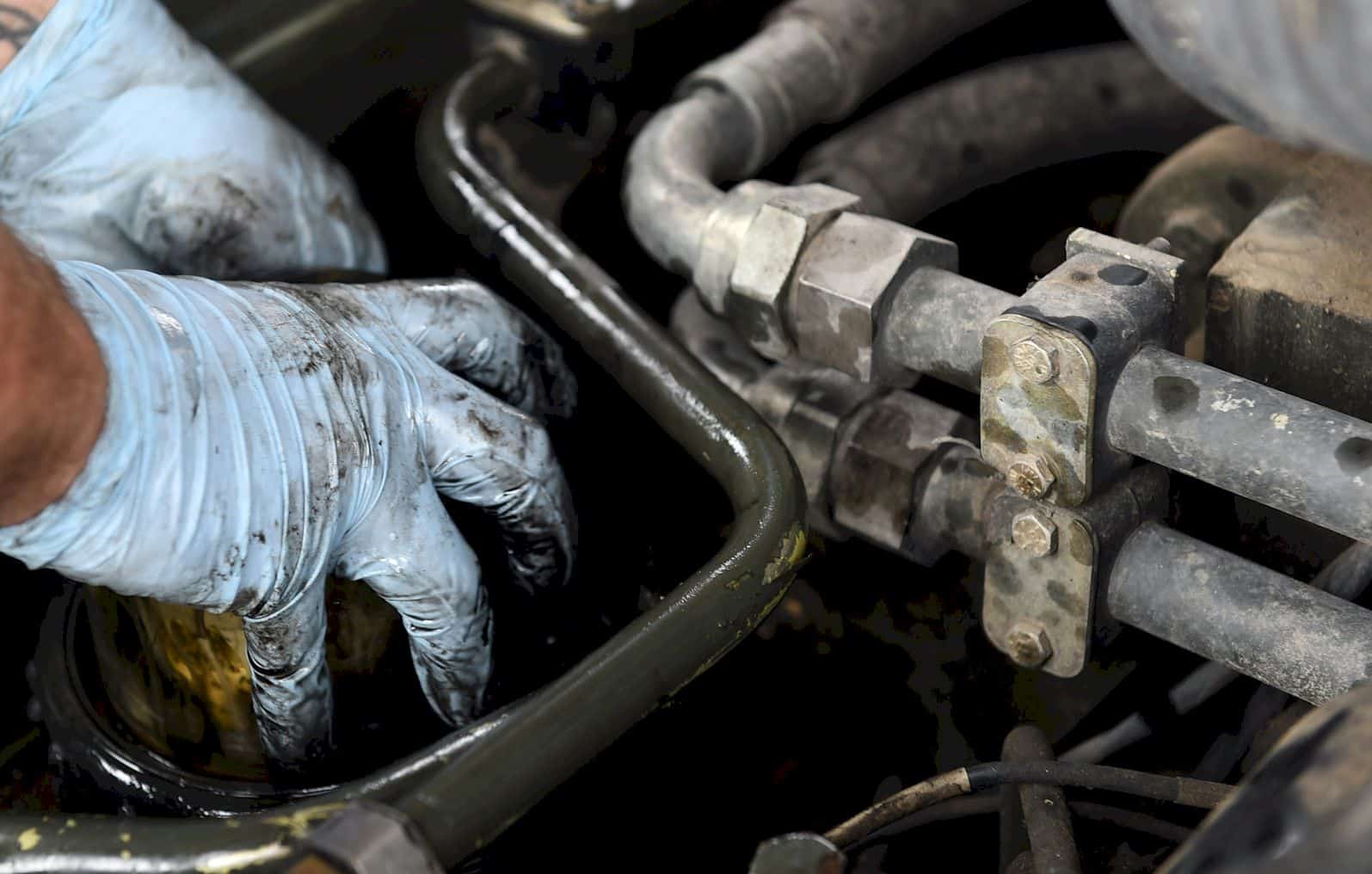Does your car make an unusual noise when starting? Does it respond quickly to acceleration? Does your engine seem to have lower power than it should have? If yes, then your car may have a bad fuel filter.
A fuel filter is responsible for keeping the combustion engine in shape. Ignoring the Bad Fuel Filter Symptoms can damage significant engine parts. Periodically changing the fuel filter prevents more repairs and unwanted costs.
How Does the Fuel Filter Work?

Even the best fuel filters can acquire dirt and sediments that contaminate your fuel and damage your engine. The fuel filter is located between the fuel pump and the fuel tank. The fuel filter keeps the fuel clean from dust and impurities. It also protects your fuel injectors.
The fuel filter prevents rust from getting into your engine. It has pleated porous materials that allow fuel to pass on to the injection system. Before the fuel reaches the system, it traps the debris and specks of dust. Over time, just like any other filters, it can trap a vast amount of residues that can alter its performance.
Bad fuel may get into the fuel injection system and potentially damage other parts of the engine. Your car needs a sufficient and right combination of gas to run smoothly.
The life of your fuel filter depends on the mileage or the environment where you drive your car. Some states can be dusty, and that contributes to more dust penetration to your fuel filter.
Symptoms of a Bad Fuel Filter
If you’re wondering what happens if you don’t change your fuel filter, dirty fuel can lead to many problems that may cost you further repairs. Before that happens, find out the bad fuel filter symptoms if it’s time to replace it.
1. Unable to Start the Engine
One of the signs of a clogged fuel filter is difficulty in starting your engine.
How does fuel filter affect ignition? The engine needs clean and quality fuel to ignite. A clogged fuel filter restricts fuel from running smoothly. Not getting enough fuel may cause your engine not to start at all.
2. Under-performing engine
A dirty fuel filter delivers low-quality fuel. This type of fuel affects engine performance since it doesn’t burn and combust the needed fuel to make the engine work. It can lead to engine overworking.
How does a dirty fuel filter affect your engine’s performance? Sometimes, the engine will hesitate or misfire. The bad fuel filter now affects the fuel injector’s performance. You’ll notice occasional misfires when the bad fuel filter restricts the engine from accelerating. The engine can lead to sputtering or idling.
Sometimes, it feels like your engine has no power while driving, especially when the road is going up. Sometimes, the vehicle stalls on a stoplight. When this happens, the engine is not receiving the required amount of quality fuel it needs to make it work.
A bad fuel filter negatively affects the engine’s power and acceleration. And it may cost higher repairs in the future.
3. Engine pinging
You will hear knocking or rattling noise that you may not only find discomforting. It also affects your acceleration.
How does a bad fuel filter create these noises? When there’s not enough quality fuel running in the system, the engine cylinders must have insufficient fuel burning and air mixture. This event happens during incomplete combustion brought by a clogged fuel filter. An engine that keeps working without adequate fuel causes rattling or pinging noise.
4. Reduced fuel economy
A faulty fuel filter can cost you more than your usual top-up.
How does a bad fuel filter cost you more fuel? An insufficient amount of quality gas results to engine overworking. The engine will ask for more quality fuel. Your fuel filter can waste quality fuel by contaminating it when it’s clogged. Now, you’ll notice that you have to top-up now and then.
5. Smelling Fumes
A bad fuel filter can lead to bad emissions.
How does a bad fuel filter cause gas odor? Since the fuel did not go through filtration, the exhaust system may emit a higher amount of carbon monoxide and hydrocarbon.
How to Check the Fuel Filter ?
If you start experiencing the symptoms above, you may have to check and replace your fuel filter. You may need someone to help you ignite the engine. Here’s how to check if your fuel filter is in good condition.
- Find where your fuel filter is. Generally, it’s in between your fuel tank and fuel pump. Sometimes, it’s under the car.
- Check the paper filter of your fuel filter. Check the fuel filter if it has trapped more than enough residue or sediments. A dark brown fuel filter is an indication that you need to replace your fuel filter.
- When the window of the filter is not visible, try doing a fuel pressure test. Blowing air can help you find out if there’s a clog in your fuel filter. Remove your fuel filter and place a hose. Blow it and find out if something’s blocking the filter.
Why you need a Clean Fuel Filter
A clean fuel filter will serve its function right. However, there are still other benefits that come along with a clean fuel filter.
- Prolongs the life of your engine - Periodical changing of fuel filter prevents your engine from combusting bad fuel. Your engine has fewer risks of getting damaged.
- Delivers clean fuel to your engine - Clean fuel is essential to make a complete combustion. It boosts your engine performance.
- Boost your fuel injector’s performance - With a clean fuel filter, contaminants will not get through your fuel injector. Fuel injectors pump in clean vapor to your combustion system.
- Prevents further repair costs - A clean fuel filter prevents more damages to your fuel injector and the engine itself. Replacing the fuel filter is preventive maintenance that costs cheaper than repairing a damaged fuel injector or engine.
- Better driving experience - With a clean fuel filter, you’ll have a smooth driving experience. You don’t have to suffer from difficulties in starting your engine, engine knockings, or constant idling of the engine.
Also Read: Process of Cleaning fuel injectors
A Few Words of Advice
Your fuel filter is the starting point from where the fuel travels into the fuel injection system, to your engine, until it reaches your exhaust system. While manufacturers say that fuel filters can last a lifetime, it still tends to clog and wear out.
You shall keep the following in mind once notice any symptoms of bad fuel filter.
- Replacing the fuel filter costs only $10 to $40. That is relatively cheaper than having to repair your fuel injector or engine.
- It only takes quality and clean fuel to keep your engine running smoothly.
James is a certified auto technician specializing in commercial vehicles. With 30 years of experience under his belt, James has encountered almost every type of automotive issue there is! Besides his day job at the repair shop, he is also an amateur race car driver.
